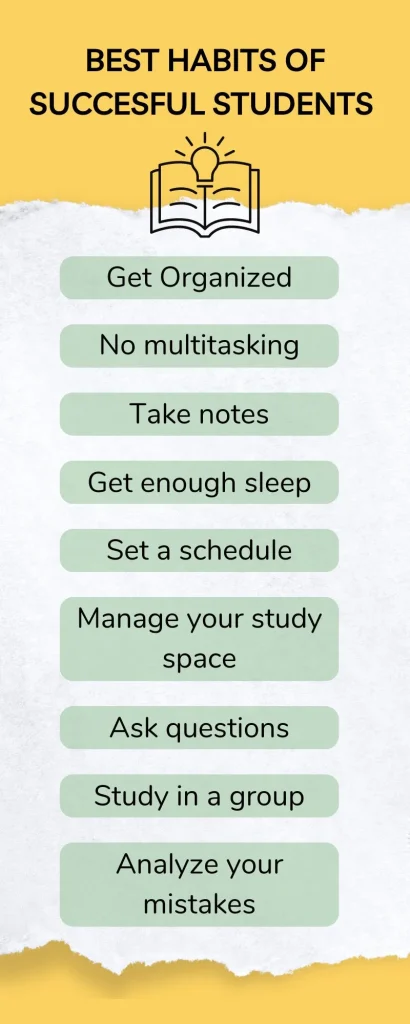Achieving a 9 CGPA in engineering is a commendable goal that requires dedication, strategic planning, and consistent effort. A high CGPA not only reflects your academic prowess but also opens doors to excellent career opportunities and prestigious postgraduate programs. This guide will provide you with effective strategies to help you reach and maintain a 9 CGPA in your engineering studies.
1. Understand the Grading System
Before you start working towards a 9 CGPA, it’s essential to understand the grading system used by your university. Familiarize yourself with how grades are assigned, the weightage of different courses, and how your CGPA is calculated. This knowledge will help you prioritize your efforts and strategize effectively.
2. Set Clear Goals
Setting clear, achievable goals is crucial for academic success. Break down your overall goal of a 9 CGPA into smaller, manageable targets for each semester. Having a clear roadmap will keep you focused and motivated.
3. Develop a Study Plan
A well-structured study plan is the backbone of academic success. Here are some tips for creating an effective study plan:
Prioritize Subjects
- Identify subjects that require more attention and allocate more time to them.
- Focus on core subjects that have a higher credit weightage.
Schedule Regular Study Sessions
- Dedicate specific time slots each day for studying.
- Balance your schedule to include time for revisions, assignments, and breaks.
Use a Variety of Study Techniques
- Combine different study methods such as reading, writing, summarizing, and teaching others.
- Utilize visual aids like charts, diagrams, and flashcards to reinforce learning.
4. Active Participation in Class
Active participation in class can significantly enhance your understanding of the subject matter. Here’s how to make the most of your class time:
- Attend Lectures Regularly: Regular attendance ensures you don’t miss out on important topics and announcements.
- Engage in Discussions: Participate in class discussions and ask questions to clarify doubts.
- Take Detailed Notes: Good notes are invaluable for revision. Write down key points, examples, and explanations given by the professor.
5. Utilize Available Resources
Make full use of the resources available to you:
- Textbooks and Reference Books: Don’t rely solely on lecture notes. Supplement your study with recommended textbooks and reference materials.
- Online Resources: Platforms like Khan Academy, Coursera, and YouTube offer excellent tutorials and lectures on various engineering topics.
- Study Groups: Join or form study groups with peers to discuss concepts, solve problems, and share knowledge.
6. Consistent Revision
Regular revision is crucial for retaining information and understanding complex concepts. Here are some tips for effective revision:
- Weekly Reviews: Dedicate time each week to review what you’ve learned.
- Practice Problems: Regularly solve practice problems and previous exam papers.
- Mock Tests: Take mock tests under timed conditions to assess your understanding and improve your exam technique.
7. Focus on Assignments and Projects
Assignments and projects often carry significant weight in your final grade. Here’s how to excel in them:
- Start Early: Begin working on assignments and projects as soon as they are assigned to avoid last-minute stress.
- Follow Guidelines: Adhere to the guidelines and instructions provided by your professors.
- Research Thoroughly: Conduct comprehensive research to ensure your work is well-informed and detailed.
- Seek Feedback: Don’t hesitate to seek feedback from your professors and peers to improve the quality of your work.
8. Time Management
Effective time management is key to balancing academics with other activities. Here are some tips:
- Create a Schedule: Use a planner or digital calendar to organize your study sessions, classes, and other commitments.
- Avoid Procrastination: Tackle tasks as they come to avoid piling up work.
- Prioritize Tasks: Focus on high-priority tasks first and allocate sufficient time for each.
9. Stay Healthy
Maintaining good health is essential for optimal academic performance. Here’s how to take care of yourself:
- Balanced Diet: Eat nutritious meals to keep your energy levels up.
- Regular Exercise: Engage in physical activities to stay fit and relieve stress.
- Adequate Sleep: Ensure you get enough sleep to stay alert and focused during the day.
10. Seek Help When Needed
Don’t hesitate to seek help if you’re struggling with a subject or concept:
- Professors and TAs: Reach out to your professors or teaching assistants during office hours for additional help.
- Tutoring Services: Utilize tutoring services offered by your university.
- Online Forums: Participate in online forums and communities related to your field of study.

Conclusion
Achieving a 9 CGPA in engineering is a challenging but attainable goal. By understanding the grading system, setting clear goals, developing a structured study plan, actively participating in class, utilizing available resources, consistently revising, focusing on assignments and projects, managing your time effectively, maintaining good health, and seeking help when needed, you can reach and maintain a high CGPA. Stay dedicated, motivated, and disciplined, and you will see the results of your hard work.

